Goran Tomić No Longer Rijeka Coach: "Thank You to Everyone at the Club"
May 28, 2022 - Goran Tomić and Rijeka have decided to part ways after the club lost to Hajduk in the Croatian Cup final and finished 4th in the Croatian First League.
After the end of the championship season and the Croatian Cup final, HNK Rijeka and Goran Tomić agreed to terminate their cooperation, announced the Rujevica club.
"In the beginning, I would like to point out that the agreement was reached on my initiative, and I thank HNK Rijeka for coming out to meet me," said Goran Tomić.
Tomić was appointed the coach of Rijeka at the beginning of March 2021, and at the end of the season, he took Rijeka to third place in the Croatian Championship. This season, Rijeka reached the Conference League playoffs, made it to the Croatian Cup final, and finished fourth place in the HNL.
"I would like to thank everyone at HNK Rijeka, starting with President Damir Mišković for the opportunity, Vice President Dean Šćulc, Robert Palikuča, and Ivan Mance, sports directors I worked with, club legend Srećko Juričić, general manager Luka Ivančić, but of course all the people in the club. Thanks to the professional staff I worked with every day, the players who played great games, and I am sure that we gave our best at all times. Rijeka will always remain in my fond memory as a wonderful part of my career. In the end, thank you to all the fans for their support," concluded Goran Tomić.
Tomić spent 15 months at Rijeka or 63 games. He recorded 37 wins, 9 draws, and 17 defeats, with a 130:85 goal difference. He finished the first season on the Rijeka bench in third place, the second in fourth. He led the team to the Cup final in the second, beating Dinamo in the quarterfinals and then Osijek in the semifinals. However, Rijeka lost in the final against Hajduk. In the weeks before the Croatian Cup final, Rijeka did not show their best side. Since March 13 and the inexplicable defeat to Dragovoljac, Rijeka practically dropped out of the title race and ended the season with six losses and only four victories in the last 11 games.
For more, make sure to check out our dedicated sports section.
SuperSport Croatian Football Cup Final Ticket Sales Announced
April 23, 2022 - HNK Rijeka and HNK Hajduk will meet in the final of this season's SuperSport Croatian Football Cup on May 26 at Poljud Stadium.
The SuperSport Croatian Football Cup final will be played on May 26 at Poljud Stadium, starting at 7 p.m. Tickets for the match between Rijeka and Hajduk will be available at the following prices through the finalist clubs, reports HNS.
Tribune North: 90 kuna
Tribune South: 90 kuna
Tribune East: 120 kuna
Tribune West: 150 kuna
Tickets for fans of the finalist clubs (20% of the stadium capacity for fans of each club) will be available directly through the clubs, while ticket sales to the public (50% of the stadium capacity) will be organized by the technical host at Poljud Stadium, HNK Hajduk.
Ticket sales for sectors intended for Hajduk fans
From Monday, April 25, the club's subscribers will have the right of first refusal for the sectors reserved for HNK Hajduk fans.
Hajduk subscribers can buy tickets online, at the Membership Department at Poljud (weekdays from 8 am to 8 pm and on Saturday, April 30, from 8 am to 2 pm), at the Hajduk Fan Shop at Joker (every day from 9 am to 9 pm) and at Ticketshop (Tisak media) points of sale until April 30 at 11:59 pm.
More details are on the official Hajduk website.
Ticket sales for sectors intended for Rijeka fans
Sectors A, B, C, and D will be available for Rijeka fans at the following prices:
Sector A: 90 kuna
Sector B: 120 kuna
Sector C and D: 150 kuna
Ticket sales start on Wednesday, April 27, and the HNK Rijeka box office will be open from Wednesday to May 2 from 4 pm to 9 pm and on Saturday from 9 am to 1 pm. From May 2, the opening hours of the box office will be Monday through Friday from 4 to 9 pm.
To buy tickets, you need to present a personal document with a photo and there will be no online ticket sales for the sectors intended for Rijeka fans.
More details can be found on the official Rijeka website.
Ticket sales for the public sector
Ticket sales will begin on May 2 at 8 pm. Tickets will be available on the website ulaznice.hajduk.hr, at the Membership Department at Poljud (every working day from 8 am to 8 pm), at the Hajduk Fan shop at Joker (every day from 9 am to 9 pm), and at Ticketshop sales points Tisak media.
To follow the latest sports news in Croatia, follow TCN's dedicated page.
Young Japanese Ballerina in Rijeka: ‘I am Happy to Start My Professional Career Here’
March 13, 2022 - A young Japanese ballerina in Rijeka has already taken the stage in many HNK Ivan pl. Zajc Rijeka performances. Meet Soyoka Iwata, who swapped Tokyo for Rijeka to launch her professional career.
Everyone who follows the ballet performances of the HNK Ivan pl. Zajc Rijeka could notice a young ballerina from Japan. Her name is Soyoka Iwata, and she has performed in "Lace" and "The Rite of Spring" by Maša Kolar, "Nutcracker" by Mauro de Candia, "Odyssey" by Walter Matteini, and "Pathetic" by Douglas Lee. She will perform again on March 16 in "Mediterranean Trilogy: Pulcinella & Afternoon of a Faun & Spanish Rhapsody," reports Novi List.
How did you decide to become a ballerina? When and how did your first contact with ballet happen?
"I started ballet when I was six years old. My mother recommended I dance ballet because I have been dancing constantly and everywhere since I was little. Since I loved to dance and ballet was the center of my world, it was natural that I started thinking about becoming a ballerina."
Your ballet beginnings were tied to the Miwa Classical Ballet Studio, and you later trained under Kiyoko Kimura. What can you say about ballet education in Japan? Is it different from ballet schools in Europe?
"I attended regular school until the evening, and after that, I ran to the ballet studio to take ballet classes. After that, I would practice until late at night. Since the age of eleven, I have participated in many competitions and trained hard every day. In Japan, many people dance ballet, and there are numerous ballet studios. Both students and teachers work very hard. However, no educational institution educates ballet dancers with government support. There are also few opportunities to learn or watch different choreographers like in Europe. For these reasons, many young dancers who want to pursue ballet are trying to study abroad."
Are you also educated to perform Japanese traditional dances?
"I had classes in high school several times, but I never took it seriously."
When you were 16, you went to the Netherlands to study at the Royal Conservatory in The Hague. Why did you choose the Netherlands, and how is this experience important to you?
"I wanted to study at a school where classical ballet and contemporary dance are equally represented because I love them both. That is why the Royal Conservatory was the ideal school for me. One of the most important experiences was that my school was connected to the Nederlands Dans Theater, so I had the opportunity to study the NDT repertoire and work with outstanding choreographers and dancers. It broadened my horizons and opportunities as a dancer."
How did you get to Ivan Zajc Croatian National Theatre in Rijeka?
"I had the opportunity to work several times in Japan with Maša Kolar, the director of the Rijeka Ballet. Since the third year of the school program was an internship year, I contacted Maša to work as an intern in Rijeka because I liked her pieces and style. In addition, I was interested in the ballet company's repertoire in Rijeka. Luckily, I started working as a ballet beginner in September 2020, and as of this season, I also became an official member. I am happy that I was able to start my professional career as a dancer at the Rijeka Ballet."
So far, you have performed in Maša Kolar's "Lace" and "Rite of Spring," Mauro de Candia's "The Nutcracker," and Walter Matteini's "Odyssey," Douglas Lee's "Pathetic." What do all these possibilities mean to you?
"In each of these experiences, I was able to find my new opportunities and future tasks. The repertoire is one of the reasons why I like this group. We have the opportunity to collaborate with a lot of good contemporary and neoclassical guest choreographers. And that makes me develop as an artist and as a person."
How is Pimpinella's role in "Pulcinella" challenging for you? Was it difficult for you to perform a character from the Italian commedia dell’arte?
"It was the first time I performed in the lead role, and I was under pressure because of that. I had no experience performing a character from dell’arte, and it was difficult for me to use the body and facial expression very expressively, theatrically, dramatically, which is a characteristic of dell’arte. Therefore, I filmed at each rehearsal to be better, and I watched some versions of “Pulcinella” to deepen my understanding and gain a better idea of this piece and its role. It was fun to perform Pimpinella because the character and manner of expression are completely different from me otherwise."
As a Japanese woman, do you feel cultural differences now that you live in Croatia?
"One of the cultural differences that I like is that people come to the theater to watch ballet as a part of life, not only in Croatia but also in Europe. In Japan, ticket prices for ballet performances are quite high, followed only by a small circle of people. I find that many in Europe love art and have a deeper understanding of ballet than it is in Japan."
What are your impressions of Rijeka?
"What I love about Rijeka is the beautiful nature, the sea, the sky, the mountains… I am from Tokyo, and I lived at an accelerated pace in a crowded city, so now I enjoy a completely different way of life. I also love the company of members of the Rijeka Ballet, and I am happy to be able to dance in a beautiful theater with amazing dancers."
For more, check out our lifestyle section.
HNK Rijeka Italian Drama Ensemble Marks 75th Anniversary
ZAGREB, 27 Nov, 2021 - The Italian Drama ensemble of the Croatian National Theatre (HNK) in Rijeka on Friday officially marked its 75th anniversary, with Culture Minister Nina Obuljen Koržinek saying the ensemble was the only permanent professional Italian theatre ensemble outside Italy.
The ensemble was established in 1946, as part of the then National Theatre, the main cultural institution in Rijeka, where the Italian language has been promoted on an equal footing with Croatian from the beginning, the minister said.
"The Italian Drama ensemble has been one of the fruitful bridges between the two cultures," she added.
She said that the Italian Drama ensemble performed also in other parts of the Kvarner region, as well as in Slovenia and Italy.
The ceremony at the HNK Rijeka was held on the same date when in 1946 the Italian Drama ensemble performed for the first time, with the "Il burbero benefico" comedy by Carlo Goldoni.
HNK Rijeka director Marin Blažević said the Italian Drama ensemble staged its first performance a month after the first performance of the Croatian Drama ensemble and some 20 days after the first opera premiere of the then National Theatre in Rijeka.
In the more recent time, members of the Italian and Croatian Drama ensembles have been performing together and members of the Italian Drama ensemble also collaborate on other ensembles' projects, he said.
"We are celebrating the unique Italian Drama ensemble and the common international future," said Blažević.
The president of the Italian Union Executive Board, Marin Corva, said the Italian Drama ensemble was one of the most important institutions of the Italian ethnic minority in Croatia and Slovenia.
The Italian Drama ensemble is an example of the two countries' deep ties, he stressed.
For more on lifestyle, follow TCN's dedicated page.
For more about Croatia, CLICK HERE.
Spectacular Start to 10th Anniversary Šibenik Dance Festival
July 20, 2021 – The streets of Šibenik are overflowing with life this July. On town squares, streets and in parks, different events appeal to every generation and demographic. On Monday 19th, the opening of the Supertoon animation festival sees families gather to watch feature-length cartoons in the Old Town streets. Above their heads, in St. Michael's Fortress, a much more startling evening's entertainment is taking place. It's the opening of the 10th anniversary Šibenik Dance Festival.
'Burning Water' by renowned Greek choreographer Andonis Foniadakis is not always easy to watch. Commissioned specifically for the ballet company of Croatian National Theatre Ivan pl. Zajc in Rijeka, the dancers have had a year to perfect it since its Capital of Culture premiere.
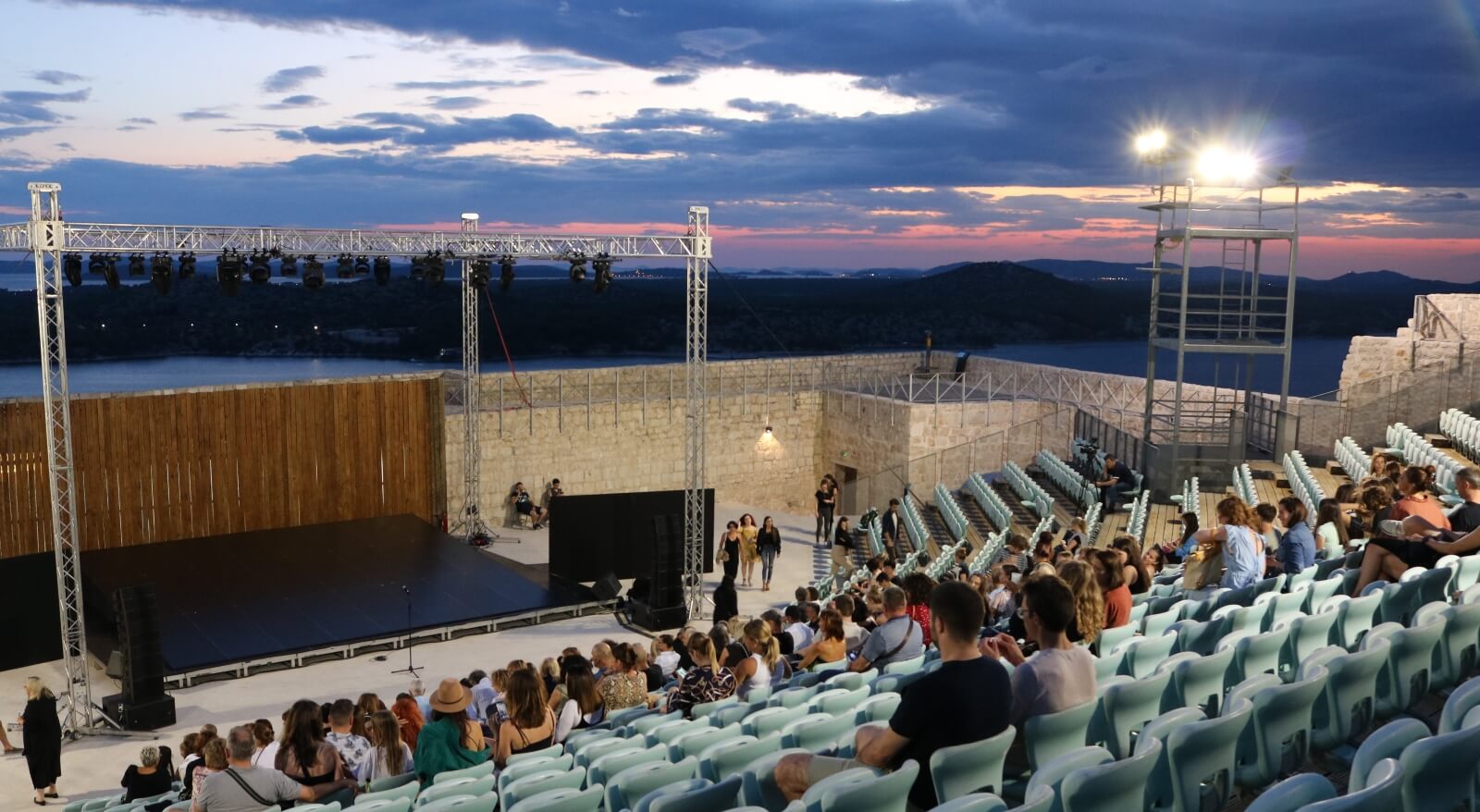 A spectacular backdrop of Šibenik, the Adriatic and sunset greet attendees at the opening of the 10th annual Šibenik Dance Festival © Marc Rowlands.
A spectacular backdrop of Šibenik, the Adriatic and sunset greet attendees at the opening of the 10th annual Šibenik Dance Festival © Marc Rowlands.
The audience takes their seats at sunset. But, as the performance begins, everything is enveloped in black. Minimally lit, androgynous dancers arrive on stage in a most unorthodox manner, their bodies twisted and contorted beyond regular, recognisable movement.
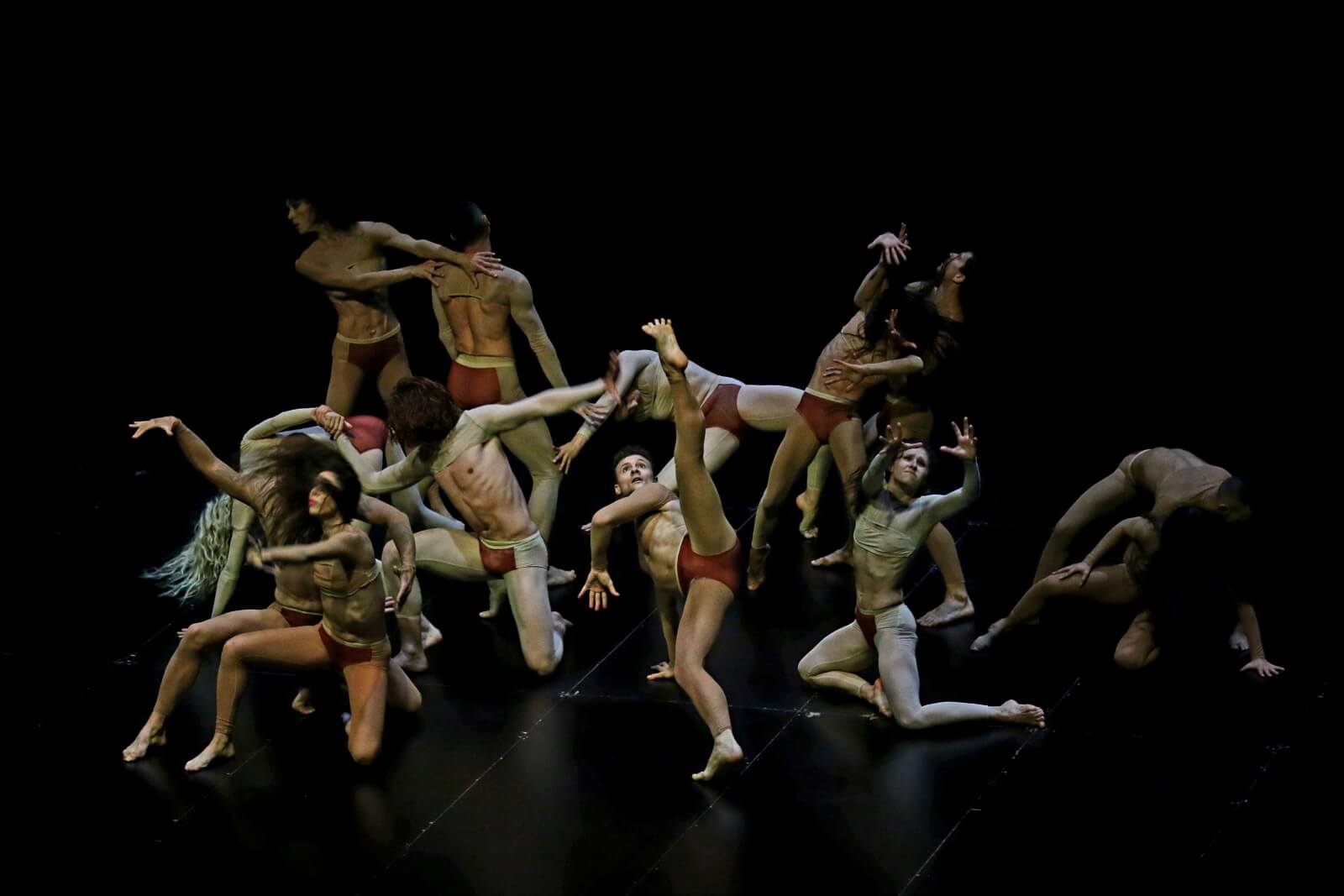
“That is the signature style of Andonis Foniadakis,” says Šibenik Dance Festival director Zorana Mihelčić. “Everybody knows it because he's so well established; very nervous, interrupted movements. I personally love his work and right now he's one of the most frequently requested choreographers in the world.”
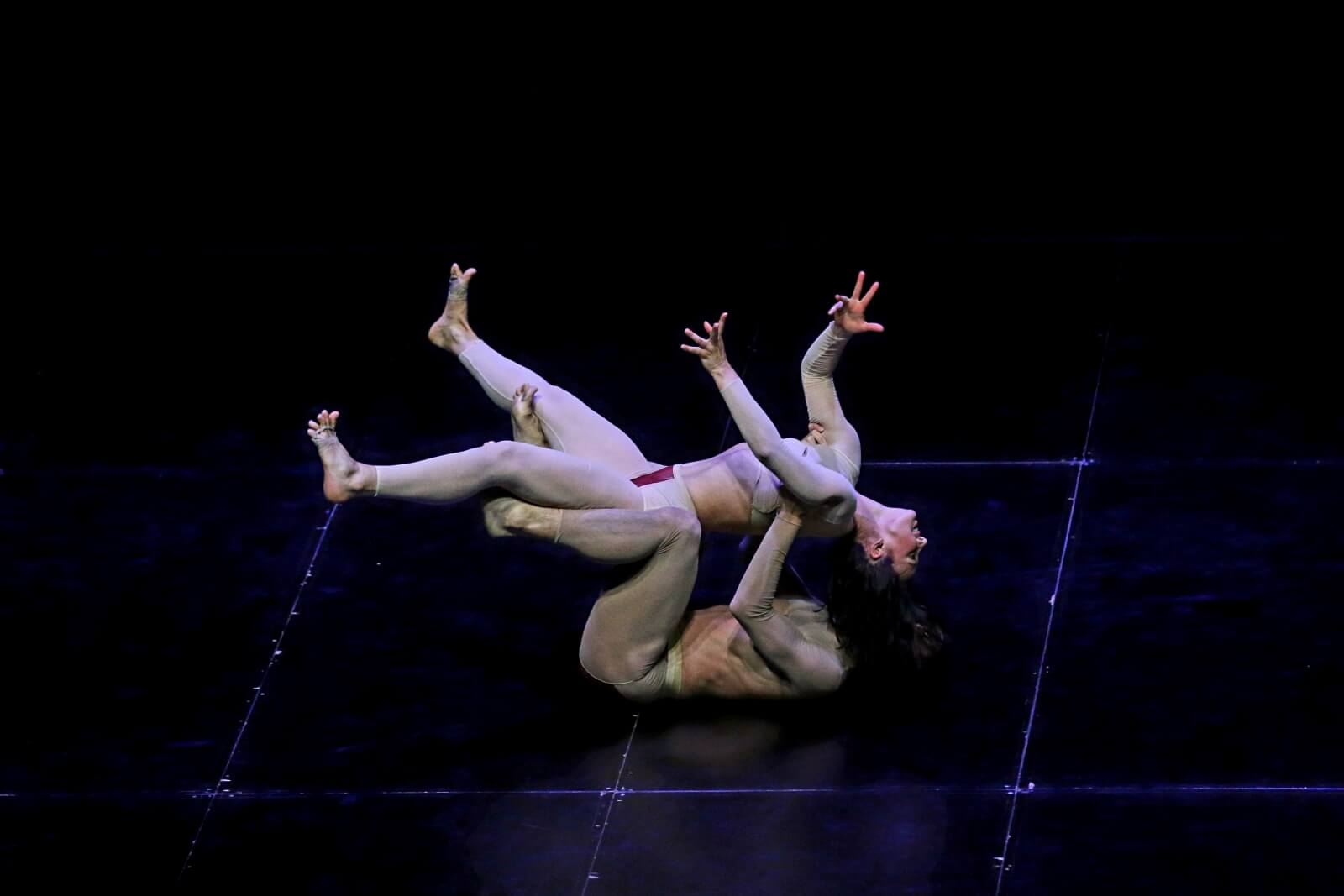
Having helmed Šibenik Dance Festival from its start to this, its 10th anniversary, Mihelčić is more than satisfied with its progress. And, so she should be. In the seats on opening night, German, English, Slovenian, Croatian, and at least one Scandinavian language are heard. On the stage, an international touring ballet troupe and world-renowned choreographer. This is a far cry from the festival's beginnings.
Evolution of Šibenik Dance Festival
“We started Šibenik Dance Festival 10 years ago as a small review of dance studios and awarded dancers. But not, professionals,” says Mihelčić. “At that time, it was held in the square just in front of Šibenik cathedral. It grew steadily each year until 2014 when the first of our fortresses was renovated. Within a month of St. Michael's opening, we secured permission to hold our opening night there. That really put us on the map and we've been there ever since.”
“We now have two programmes running simultaneously; we kept the amateur and student dancers programme, which was our foundation. But, now we have professional, international dance companies as a major part of each event.”
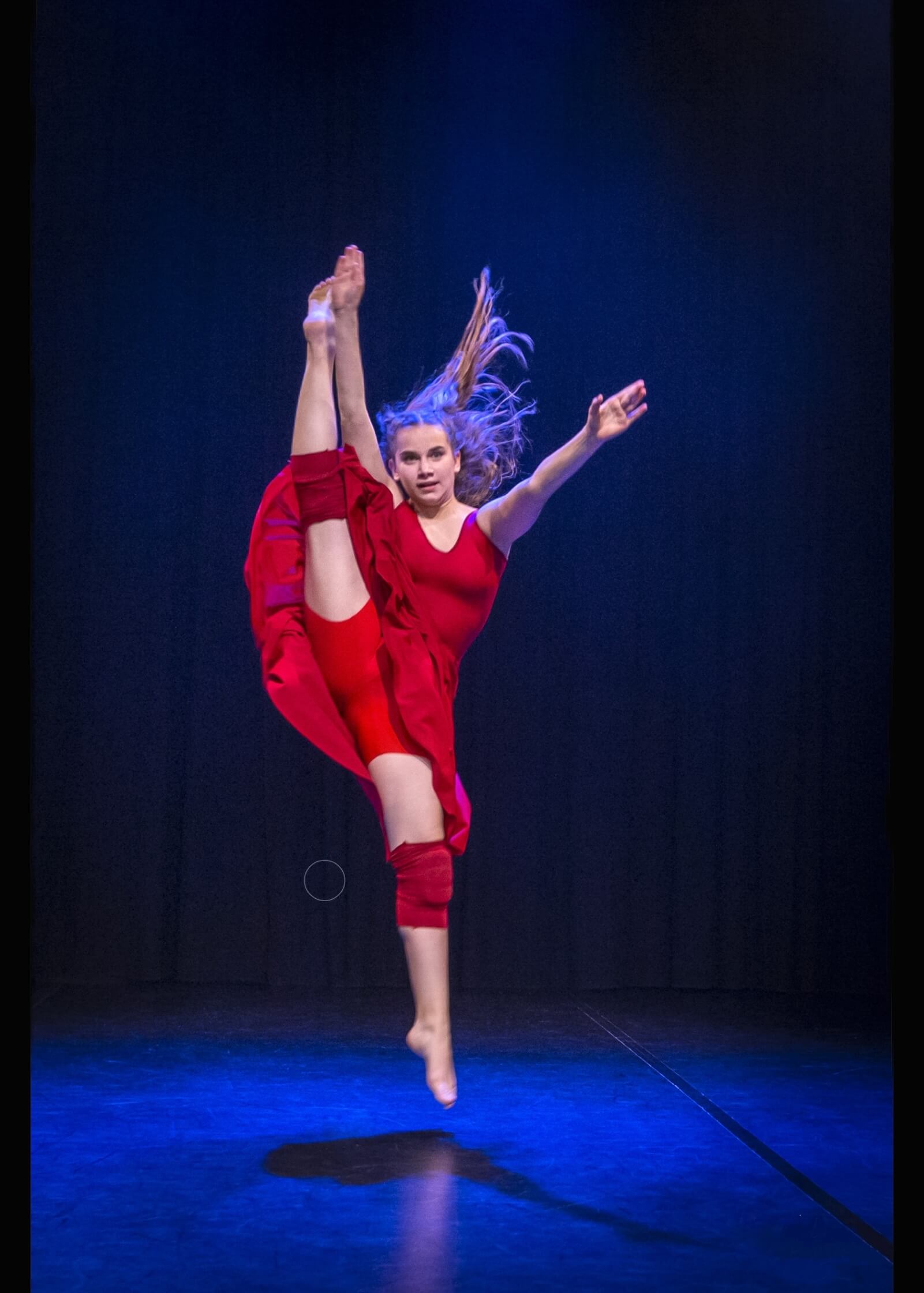 Ilijana's dancers, part of the student / fringe programme of Šibenik Dance Festival © Mladen Božičković
Ilijana's dancers, part of the student / fringe programme of Šibenik Dance Festival © Mladen Božičković
Continuing throughout this week, Šibenik Dance Festival manages to entertain everyone currently in Šibenik. Committed fans of contemporary dance and art will visit more spectacular venues like Barone Fortress. On Wednesday 21st, a visit there by Zoltán Fodor's Inversedance – an incredibly well-respected dance company from Budapest. They arrive with a new performance 'You and the World'. Its premiere was just one month ago. The next night, Thursday 22 July, jazz and hip hop dancing, again at Fortress Barone and the Association of Ballet Artists of Serbia.
In Arsen Art House, conceptual and contemporary pieces by Rita Gobi from Hungary and regional star Isidora Stanišić on Tuesday 20th. The festival concludes in the same venue on Friday 23 with a conceptual piece called 'Body Shots'. It's a co-production between Germany's CocoonDance Company and Zagreb Dance Center.
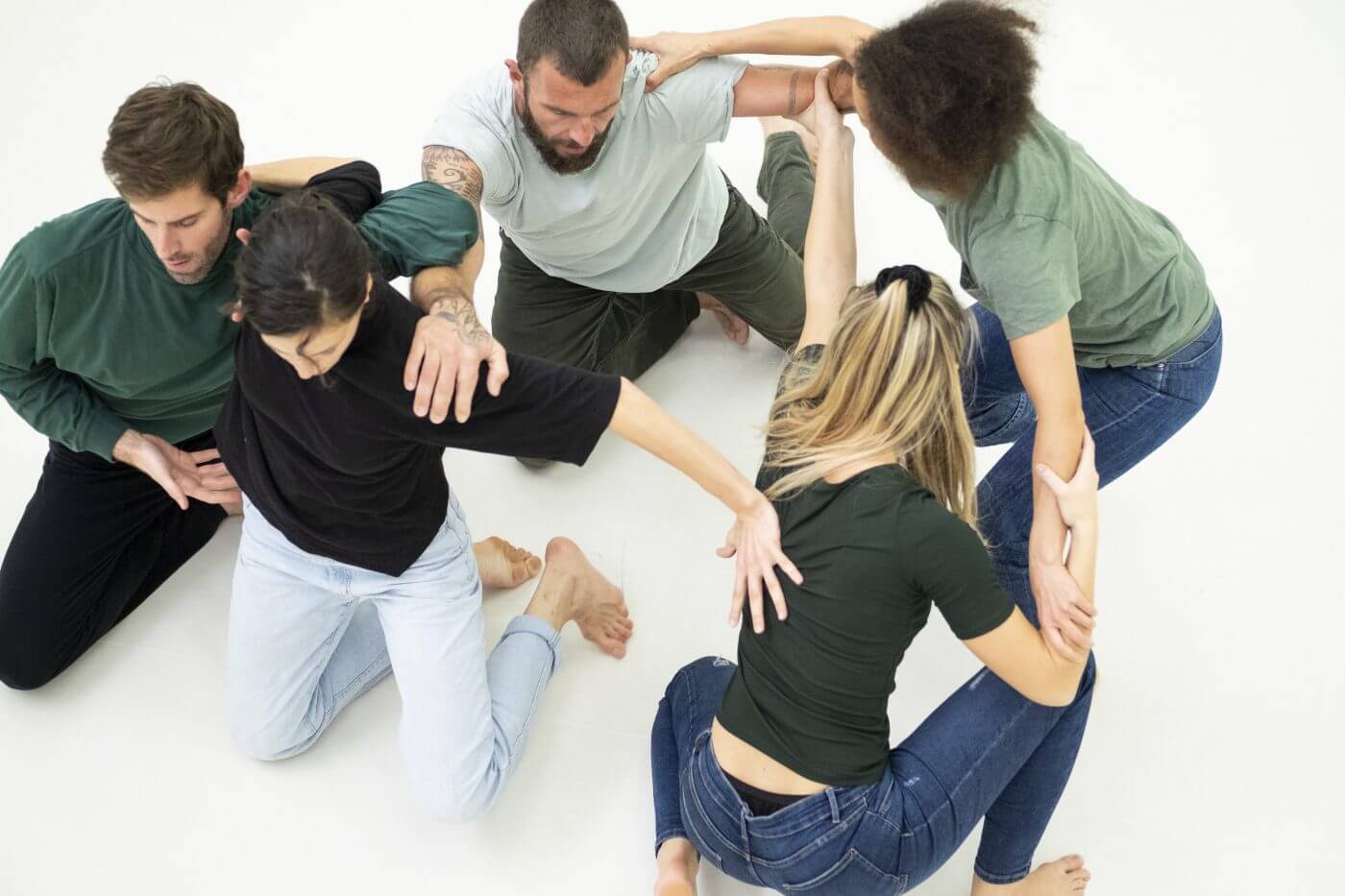 Body Shots by CocoonDance / Zagreb Dance Center © Neven Petrović.
Body Shots by CocoonDance / Zagreb Dance Center © Neven Petrović.
Although, for many visitors, the highlight of Šibenik Dance Festival is still the public performance on the city streets by youngsters and amateur dancers.
“This year, it's a really exciting mixture, accessible to everyone,” says Zorana Mihelčić, clearly excited about the performances to come. “20 minutes of great tap dancers from Dubrovnik, then 10 to 15 minutes of very young students from the ballet school in Split. After that, contemporary dancers from Požega, also salsa, hip hop fusion, classical and contemporary ballet. It will be great.”
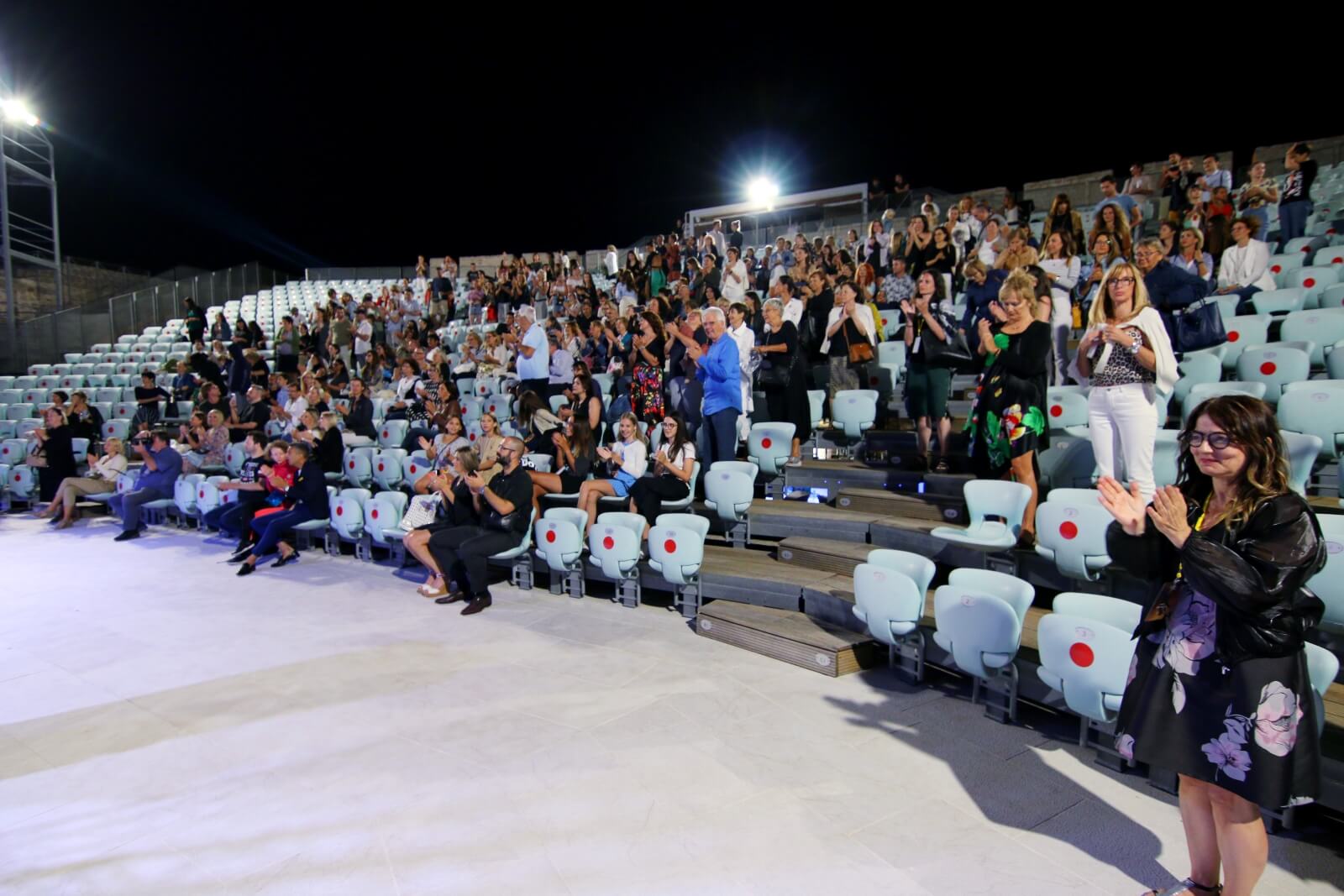 As shown above, final applause for the 2021 festival opening night. Festival director Zorana Mihelčić can be seen in the bottom right-hand corner.
As shown above, final applause for the 2021 festival opening night. Festival director Zorana Mihelčić can be seen in the bottom right-hand corner.
The free public performance of youngsters and amateurs at the 10th anniversary of Šibenik Dance Festival takes place at Poljana square, just in front of Šibenik National Theatre on Wednesday 21 and Thursday 22 July between the hours of 19.00 and 22.00.
All photos © Šibenik Dance Festival unless otherwise accredited.
Goran Tomić Named New Coach of Rijeka!
March 1, 2021 - Goran Tomić has been named the new coach of Rijeka!
The former Lokomotiva coach arrives at Rujevica after Simon Rožman left the club on Saturday. Recall, Rijeka suffered a 0:1 defeat to Hajduk in the 23rd round of the HNL on Saturday.
Goran Tomić came to Rujevica on Sunday. The Šibenik native, who did a top job with Lokomotiva last season, finishing 2nd in the HNL with a spot in the Champions League, recently lost his engagement in China, and ideally fits into the "long-term solution" Rijeka is after. In the Cup final last summer, Tomić lost with Lokomotiva against Rijeka and Rožman in Šibenik.
Tomić left Lokomotiva in early January to succeed Giovanni van Bronckhorst on the bench of Chinese Premier League Guangzhou City. His visa to China was denied after he contracted COVID-19.
Rijeka was taken over by Slovenian expert Simon Rožman in September 2019, when he succeeded Igor Bišćan, who went to the U-21 national team. In the first season on the Rijeka bench, Rožman won the Cup, beating Lokomotiva 1:0 in the final, and won third place in the Croatian championship. Only 12 days ago, he signed to extend his contract with Rijeka.
"Goran Tomić is the new coach of the Croatian Football Club Rijeka. Tomic signed a contract for a year and a half with the possibility to extend for another year. Goran, welcome," announced Rijeka on its Twitter page.
HNK Rijeka presented Goran Tomić at a press conference at 2 pm.
"I was given a great honor and opportunity to lead one of the largest Croatian clubs. I want to be the coach of a great club and fight for trophies and the highest goals and I thank you for the trust and honor that was shown to me," said Tomić.
"As soon as Rijeka's call came, I didn't hesitate for a second. I come full of energy and confidence in the desire to turn the situation around for the better. I will do everything in cooperation with the headquarters to achieve the goals of Rijeka. There is quality in the team and I will do everything possible in a short period of time to be ready," he added.
Sports director Ivan Mance also wished the new coach all the best.
"At the beginning, we want to thank Simon Rožman for his cooperation, the results show how good he was. He achieved great success, won the Croatian Cup, and achieved placement in the Europa League group stage. I am happy that our first and only candidate for coach has become the coach of Rijeka. Goran, I wish you all the luck in the world and a lot of success."
To read more about sport in Croatia, follow TCN's dedicated page.
Will Croatian Football Survive Corona? Damir Miskovic of HNK Rijeka Weighs In
April 10, 2020 - Damir Miskovic, the owner and president of HNK Rijeka, talks about the realities of Croatian football after the coronavirus.
Nearly one month has passed since almost all sports competitions have stopped around the world. The coronavirus pandemic has changed the world as we know it; it has not only stopped sports, but many other branches, and the real consequences of it are yet to come. Sports will be one of the hardest hit.
This is illustrated by the fact that clubs around the world are laying off, or at least furloughing many employees and reducing player wages. Without matches, there is no income, and without income, there is no money to pay off contractual obligations.
If they are already doing this in some of the world's biggest and richest clubs, why would it be any different in Croatia?
Damir Mišković, president of HNK Rijeka, who has been pumping his money into the club for years, tried to explain in an interview with Index.hr that this is a narrow view of the current situation and that the consequences of this pandemic will be more far-reaching than what is seen at the moment.
Why was cutting wages in Rijeka necessary?
"Cutting is an ugly word; I would say we pulled specific measures in a specific situation. We need to understand that the economy of the world in all segments, including sports, will get other dimensions, whether we like it or not. I'm always optimistic, and when I say something pessimistic, I am realistic. This is just the beginning of a major crisis in the world that will lead to a major crisis in sports, both in Croatia and in the world. Who will think of athletes when people who own businesses have to quit?"
What did the first team players conclude at a recent meeting regarding this situation, when the proposal to reanimate the First Team Association was rejected?
"We will have a lot to change in the next 2-3 years. All the HNL clubs were talking about this 3-4 weeks ago. Maybe some didn't understand the gravity of the situation, but now they understand it. We come up with common proposals, but then each club has a specific situation. We have come to an agreement that we need to see how much money anyone will need at their financial level to endure a year, because if some fail, we will not have a League. To say the least, in Inter or Varaždin, a salary of 2000 kuna is a lot, with us it is 2000 euros, a maximum of five or seven thousand, depending on the contract. We talked about it. Now Fifa has helped us too, because if we can't pay the players, we can only give them the papers, because everyone has the right to ask for what the contract should be."
What consequences will the clubs feel in the long run?
"I find it funny when someone says that football is losing nothing. It loses by not playing, that’s number one. Rijeka has enough fans; we have about 5500 regular spectators. When they come, there are more sponsors. If the players do not play, they cannot even show themselves and thus sell themselves, or they can be sold for less money. And our clubs live on sales and that is 80% of their revenue, in fact, the only normal income.
The crisis is already felt, most of the sponsors, big or small, are gone, and that money has paid some expenses, whether it be the working community, electricity, water, mowing the grass... Well, the sponsor who gives you beer in the stadium no longer works. When a small club comes to Dinamo or Hajduk, they earn a month's salary. Additionally, if the season continues, say, in June, players will have about three weeks of preparation after doing nothing for two months. My coaches tell me this is impossible. There will certainly be more injuries that will not allow players to be sold again."
Can the situation in the HNL be compared to that in the stronger leagues?
"We like to watch Barcelona, but we have a lot less to measure. We have to watch our league as it is, and it's much better than it was eight years ago when I came.
I have contacts with people, presidents or directors of the clubs in the League; they are not even thinking about buying or selling today, as rich as they are, just looking at cutting costs and surviving the next year or two."
And how to survive?
"If we tighten the belt and hold it for 10 months, things might get better. If not, we will all sit down together, have a drink, have fun, and go our own way. It will be one hell of a year. People won't have tickets. TV rights? Who will pay for the packages to watch the matches? I'm covered with these measures for the next six months, some clubs will have them in three months, some only for a month, and then what? We all need to survive together, so it will be easy to argue again whether it was offside or not."
Could Croatian football be helped today by the First League Association, called by some?
"It's been four years and what have we done? We did not agree on the ball, joint jersey manufacturers, TV rights, sponsors, nothing. We would be in Zagreb, having lunch together and we did nothing.
If you ask me if we need the First League Association, yes, we do. But it's like the Opatija Initiative, three years ago when we put together a proposal for the systematic financing of sports from TV rights, bookmakers... competition. We would cover 260,000 athletes in Croatia, each sport would have its own representative, and below would be separate bodies, this is how it works. We did the distribution by sports and by clubs, everything was included. To bring together 5-6 trophy sports, so which would be a bigger force in negotiating with sponsors or on TV rights?
But for starters, all football clubs and their representatives, through the HNS Commission with Mr Markulin at the helm, need to talk and come up with models and show that we are able to find sponsors and that we can have an association that produces money for clubs."
If everything goes back to normal, how can you better sell your Croatian football product in the future?
"There are about 160,000 subscribers to HNL channels in Croatia. And where are those pirating? To regulate this would be three times the number of subscribers. Cafes pay the same subscription as individuals, filling 50 seats during a match and everyone watching football for the price of one. They may not have to pay 50 times more, but five times more would be a major shift.
We also get nothing from bookmakers. If someone is watching us and betting on our matches, where is our share?
Furthermore, how many tourists, visiting fans, come to European matches? How many hotels do they get extra nights? We bring thousands of tourists, yet we still have to pay various taxes and surtaxes.
We need to understand that sport is not a profitable branch. Players earn, managers earn, but clubs do not. Sport should be cultivated for people to do sports instead of nonsense, but there is no income there."
How would you comment on the government measures taken today to assist sports associations and clubs in the wake of the corona crisis?
"NK Rijeka is not entitled to benefits for the working community because the City of Rijeka has a 30% stake in the club, but I have to praise the Sports Office for having done this, no one has bothered so much, and that is a step."
To read more about sport in Croatia, follow TCN's dedicated page.
Damir Mišković and Chinese Investors Make First Step for New Kantrida Stadium
The first step to constructing a new stadium in the Kantrida neighborhood of Rijeka was made in Dubrovnik.
Armada Calling for Kantrida Stadium in Rijeka to Again Start Hosting Matches
Representatives of Armada also proposed for the iconic stadium to be made part of the project European Capital of Culture 2020
Potential New Buyer for HNK Rijeka?
Did you know that Rijeka is worth much less than Hajduk and Dinamo?


